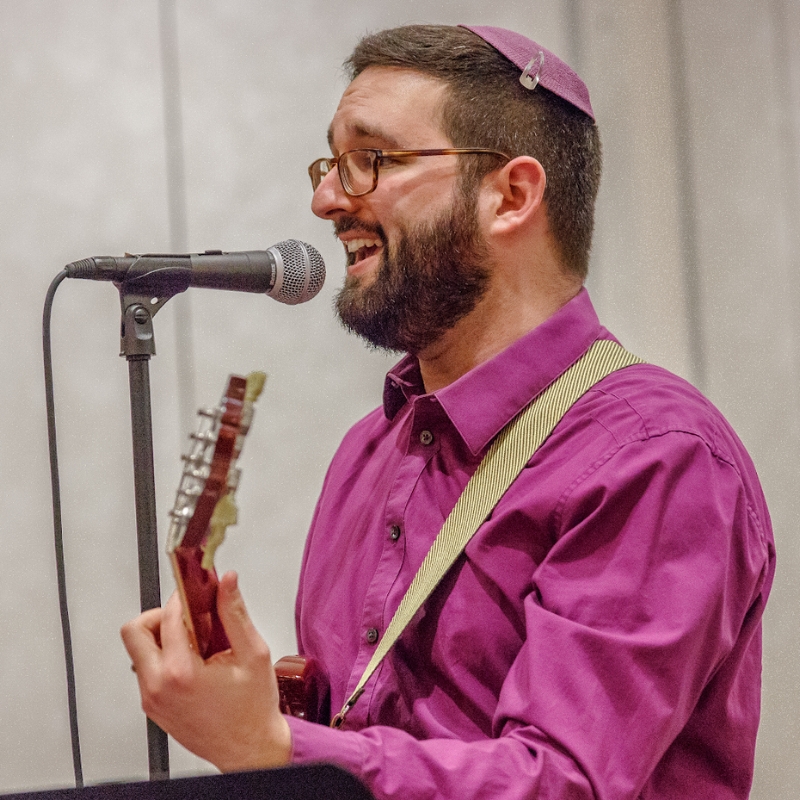Parshat Vayeshev teaches a surprising lesson about the pursuit of justice: To be righteous means not to sit alone on a philosophical high horse but rather to be a loving actor in a painfully imperfect world.
Bereshit Rabbah comments on the opening words of Parshat Vayeshev, “And Jacob was settled.” (Genesis 37:1) The midrash offers a deep and powerful critique of Jacob’s settling:
Rav Aḥa said: When the righteous live in tranquility and seek to live in tranquility in this world, the accusing angel comes and denounces them. He says: Is what is prepared for them in the World to Come not sufficient for them, that they seek to live in tranquility in this world? Know that it is so; Jacob, our patriarch, because he sought to live in tranquility in this world, was confronted by the accuser regarding Joseph [meaning: the heavenly accuser caused Jacob to suffer distress due to the sale of Joseph]. (Bereshit Rabbah 84:3)
In other words, Jacob sought to isolate himself from the outer world. He felt he had faced his fair share of suffering and no longer wanted to play an active role in the unjust society around him. However, as the accusing angel in the midrash rightfully reminds us, disengagement is not an acceptable choice for those who seek to be righteous. To paraphrase the Black activist Robert “Sonny” Carson, there can be no peace without justice.
Find more commentaries on Vayeshev.
The Ishbitzer Rebbe, Rabbi Mordechai Leiner, builds on the midrash, suggesting two striking ideas. The first is that Jacob’s withdrawal is because he was striving for moral purity and wanted to avoid the doubts and complexity of reality. The second is that reality requires us not to concern ourselves with our moral perfection but rather with loving action for the imperfect people with whom we interact.
The Ishbitzer writes,
“Jacob was settled in the land of Canaan, in the land of his father’s sojournings:” his father’s fear… and he sought to dwell in peace. This peace is obtained when a person behaves in such a way as to keep far from all doubt, and guards himself from any evil act. That is the modality of peace. But in response to Jacob’s desire for such peace, God told him that as long as a human being lives a bodily existence, it is impossible to behave with extreme wariness, fear, and humility. For God wants human acts, and in this world human beings must act with love, in ways that are not completely clarified. (Mei HaShiloach on Bereishit, VaYeishev 1; translation by Avivah Gottlieb Zornberg in “Genesis: The Beginning of Desire”)
The contemporary Torah scholar Avivah Gottlieb Zornberg further explains this as follows:
In this reading, Jacob’s desire for… cognitive certainty and moral scrupulousness (which the Ishbitzer calls “fear” and “humility,” respectively), is countered by God’s insistence on the tragic nature of existence in this world… In this world, what is most needed is not fear, which deprives man of initiative beneath the sleepless eyes of God, but love — the capacity to act in a world where absolute clarity is not obtainable.
Find more commentaries on building coalitions across differences.
Actions for justice must come from love, even if that love is confused and pained. Paradoxically, justice comes from embracing the complexity of reality rather than distancing oneself from reality in pursuit of the purest ethical ideal. This concept makes sense when we think about it. How many coalitions have fallen apart over demands for moral purity? How much potential solidarity has been squandered by philosophical spats? This is not to say that injustices are not connected. On the contrary, everything is interconnected — which is exactly the point the Ishbitzer and Zornberg are making. Ethical perfection is not possible in an imperfect world, and running away from reality to seek private peace is not an option. Instead, we must act with love within our spheres of influence. There are injustices over which we have more or less power, and there are opportunities for coalition-building across disagreements.
It will be some time before those of us who strive for righteousness can enjoy true peace. When I was a rabbinical student, I once heard a wise classmate say: There are lots of things more important in life than personal happiness. I believe that, among other things, they were referring to the pursuit of justice. The work of tzedek (justice) requires us never to settle down into tranquil silos, but rather, to face injustice head-on, never giving up on the power of truth, balanced with love, in building a world of righteousness.
In this increasingly polarized, post-October 7, post-2024 election world, it’s tempting to find and settle into a micro-community of spiritual and moral purity. But the very title of Parshat Vayeshev challenges us to love the world as it is even as we grieve it, to embrace the messiness of reality, and to take loving action in the pursuit of justice.
Louis Polisson is a musician, poet, and rabbi. He was ordained by the Jewish Theological Seminary in 2018, where he also earned an MA in Jewish Thought (Kabbalah and Ḥasidut). He currently lives in Teaneck, NJ, where he serves as the associate rabbi and music director at Congregation Beth Sholom.

